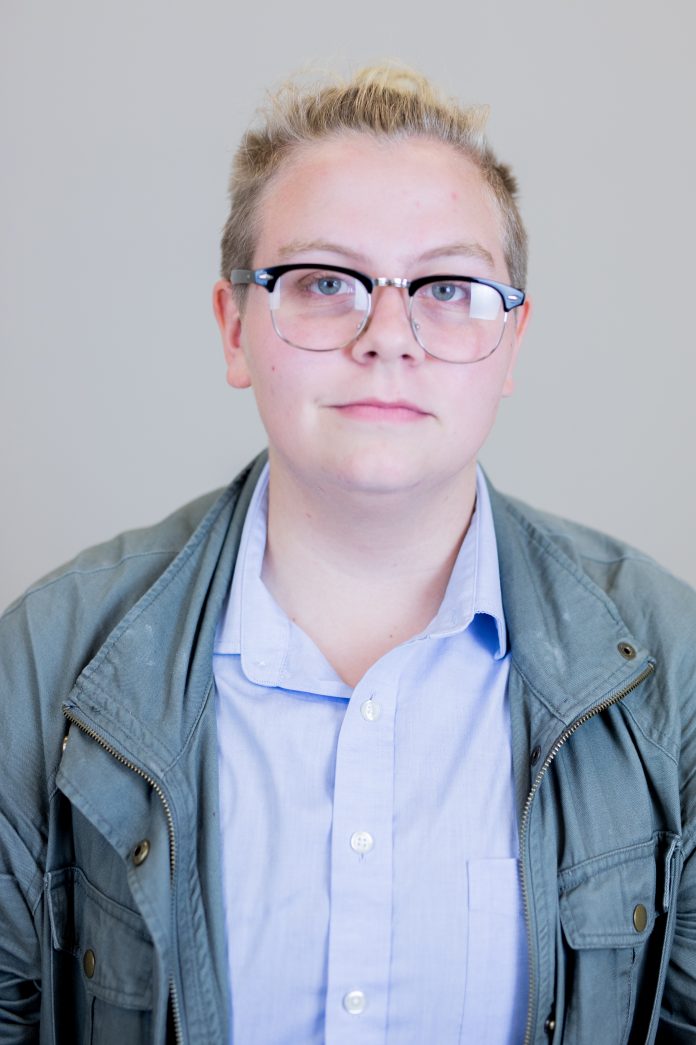
Hello there! If you’re reading this, it is probably safe to assume that you are a student or faculty member at DePauw University, or are close to the University in some way. If this is your first time reading, allow me to introduce myself: my name is Reid Cooper and I am a transgender man.
If you followed my stories at all last year, you’ll probably remember that in my very first article for the DePauw, I used the platform to announce my identity in an incredibly public space in an article about Greek life on campus. I feel as though I should continue this trend of being overwhelmingly proud of my identity, so I’m here to give some advice to all the queer first-year students on campus.
- Find your niche
By now, you’ve probably started to settle in on campus and get your bearings, but you may not have yet forged those close college friendships you hear your parents talk about all the time. Try not to worry, you’ll get there. I was lucky enough to have a first-year mentor who was able to immediately connect me to the transgender community on campus, and I quickly settled into developing friendships with the people I now hold near and dear to my heart. It can be easy to get caught up in the motions of collegiate life, but I cannot stress enough how important it is to find your community.
- It’s going to suck sometimes
For the most part, DePauw is an incredibly accepting campus. There’s plenty of resources and people to reach out to as well as a generally open-minded environment. That’s not to say that there won’t be instances of close-minded people, given that we are still located in a predominantly conservative area in a predominantly conservative state. It’s going to hurt sometimes and you might feel like you’re alone, but that’s why I stress the importance of finding your community on campus. It’s important to be able to have a support system to fall back on in tough times, regardless of whether it is being caused by stress, loneliness, poor health, etc.
- Be proud, but don’t risk your safety
I’m one of the lucky ones. I have the confidence and ability to be out and proud, mostly due to my wonderful friends and professors that have made me feel safe on campus. But not everyone has that. Many people aren’t able to come out for many reasons, such as an unsupportive family. So I implore everyone, especially cisgender heterosexual people, to be conscious of what language you’re using, because you never know if someone around you is in the closet.
- Learn to navigate cisnormativity/heteronormativity
A lot of times in class, as well as day-to-day life, you’re going to see just how much our society is centered on cisgender and heterosexual lifestyles. Language is inherently gendered, and people are assumed straight unless told otherwise. It’s going to be important for you to learn how to navigate these instances, and how to hold your friends and classmates accountable for the language they use.
- Know your rights on and off campus
Unfortunately, there is still much work to be done when it comes to the rights of queer people, especially in the state of Indiana. Make sure you’re informed of DePauw’s nondiscrimination policy, as well as how you should go about reporting bias incidents on campus. In the state of Indiana, information is collected on “bias incidents,” but does not criminalize them as a hate crime, nor does it alter proposed sentencing requirements due to sexual orientation bias. Gender identity is also not included in the hate crime statutes. That being said, however, such hate crimes are still banned federally under the Matthew Shepard Act. Knowing your rights as a queer student and individual is vital if you are ever faced with challenges against your identity.
Of course, this list doesn’t even begin to cover the fine nuances of being a queer student on a college campus; I would have to go on forever to cover everything. Try not to stress out too much, you’ll find your place soon! Never be afraid to reach out if you need help, my inbox is always open if you are looking for other queer students on campus to befriend. Starting your higher education experience can be a rapid and difficult transition for all students, but it can be especially hard for us queer students.
